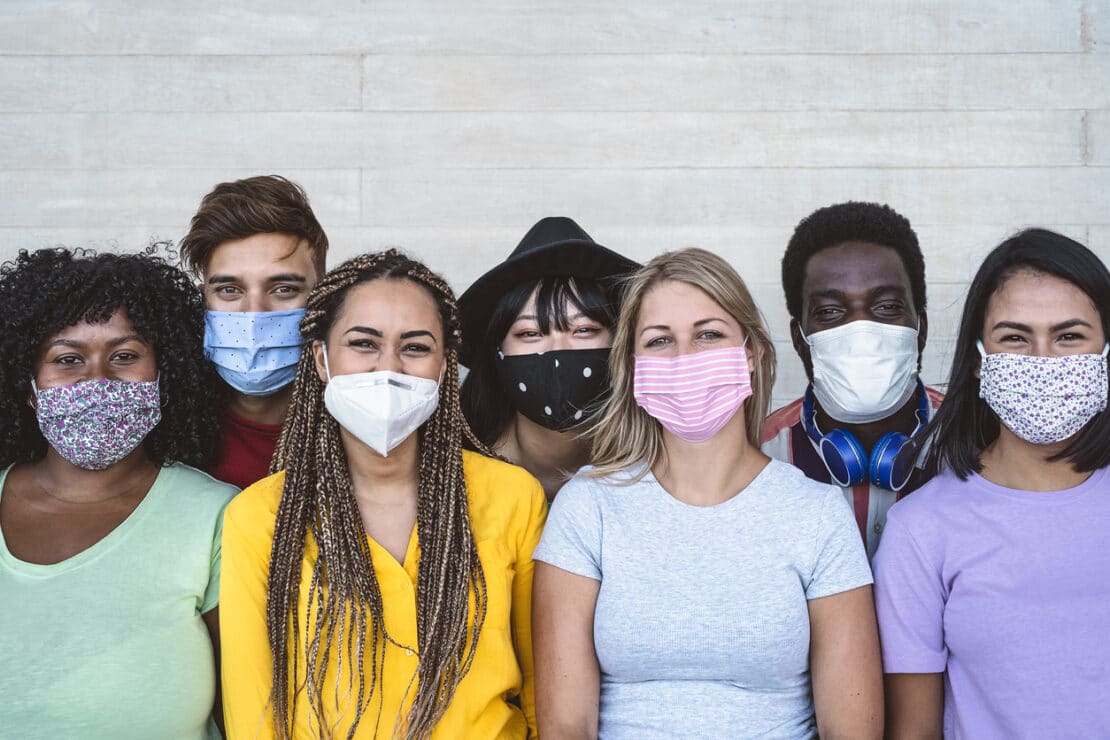You can find face masks made out of just about any type of fabric. There are masks made from cotton, nylon, polyester, paper fiber, and even vacuum cleaner bags.
But a new study shows that silk masks may be more effective than any of them.[1]
In fact, researchers found that masks made from silk might be the next best thing to the N95 respirators that health care workers use.[2]
Scientists at the University of Cincinnati say that silk has properties that make it superior to other mask materials:
- It contains copper, a natural antimicrobial. Studies show that copper kills viruses on contact.
- It repels water. The researchers found that silk works far better as a moisture barrier than polyester or cotton, two of the most common mask materials.
- It’s breathable and comfortable. Silk is softer than other mask materials.
The researchers concluded that silk performs similarly to the standard protection that medical workers now use, which is an N95 respirator with a surgical mask on top of it. But silk has the added advantage of being washable and far more comfortable.
Professor Patrick Guerra led the study. “Cotton traps moisture like a sponge,” he said. “But silk is breathable. It’s thinner than cotton and dries really fast.”[3]
Silk gets its copper-based germ-fighting ability from the primary food of silk moths. They eat mulberry leaves, which are high in copper.
“They incorporate copper from their diet into the silk,” Professor Guerra said.
Silk masks may also prevent mask-caused acne, known as “maskne.”
Dr. Mathew Avram is director of dermatology at Massachusetts General Hospital. He said silk glides easily across the face, reducing irritation that can lead to acne.
“You want to decrease the amount of friction between your face and the mask,” Dr. Avram said. “That is what causes some of that (acne-causing) irritation.”[4]
Silk face masks are widely available from online retailers.
In addition to wearing a silk mask, there’s another simple way you can shield yourself from coronavirus, according to new research.
Could Glasses Protect You From COVID-19?
Fewer people who wear glasses are hospitalized for COVID-19.
That’s the conclusion of a recent study published in the Journal of the American Medical Association (JAMA). It found that people in China who wear glasses were only about 20% as likely to be hospitalized with the coronavirus compared to those who don’t wear glasses.[5]
The authors speculate that eyeglasses may deflect viral particles, protecting the wearer.
Another explanation might be that people who wear glasses are less likely to rub their eyes. Researchers believe that eye rubbing may cause infection by transferring the virus from the hands to the eyes.
Dr. Lisa Maragakis is an infectious disease specialist at Johns Hopkins University School of Medicine. She noted that the study was relatively small, involving 276 patients. Further research will be necessary before we know for certain that glasses protect against the coronavirus.
“But it does have some biological plausibility, given that in health care facilities we use eye protection” such as face shields and goggles, Dr. Maragakis said.[6]
And there is clear evidence that your eyes can become infected with coronavirus. A case study published in the Journal of the American Medical Association described a woman recovering from COVID-19. Tests revealed that her eye tissue contained the virus. [7]
A June 2020 study published in The Lancet found that goggles and face shields protect the wearer from the coronavirus. But eyeglasses don’t offer as much coverage.[8]
“Corrective lenses or sunglasses can shield your eyes from infected respiratory droplets,” the American Academy of Ophthalmology wrote in an online post in May. “But keep in mind that they don’t provide 100% security. The virus can still reach your eyes from the exposed sides, tops, and bottoms of your glasses.”[9]
The bottom line?
Glasses may offer some protection. If you have both glasses and contact lenses, glasses might be the better choice when you go out in public during the pandemic.[10]
Editor’s Note: Read our monthly newsletter Independent Healing to discover the most-effective, science-backed strategies to stay healthy during the pandemic.
Learn about the vitamin supplement Dr. Fauci is taking… Why one mineral is crucial during the pandemic… How daily aspirin lowers your COVID risk… The natural supplement that outperforms an emergency COVID drug… And much more. Get all the details HERE.
Related Articles
Coronavirus: Stop Worrying About Contaminated Surfaces
Pandemic Plane Travel May Be Safer Than You Think
This Is How You’re Likely to Catch Coronavirus
[1] https://medicalxpress.com/news/2020-09-silk-homemade-solution-covid-.html
[2] https://www.medrxiv.org/content/10.1101/2020.06.25.20136424v1
[3] https://medicalxpress.com/news/2020-09-silk-homemade-solution-covid-.html
[4] https://www.bostonmagazine.com/health/2020/05/20/face-mask-breakouts-skincare-tips/
[5] https://pubmed.ncbi.nlm.nih.gov/32936214/
[6] https://www.nytimes.com/2020/09/16/well/live/does-wearing-glasses-protect-you-from-coronavirus.html
[7] https://consumer.healthday.com/infectious-disease-information-21/coronavirus-1008/new-coronavirus-can-infect-your-eyes-as-well-as-your-lungs-762064.html
[8] https://www.thelancet.com/journals/lancet/article/PIIS0140-6736(20)31142-9/fulltext
[9] https://www.newsobserver.com/news/coronavirus/article243232011.html
[10] https://www.peoplespharmacy.com/articles/do-eyeglasses-help-protect-you-from-covid-19?utm_source=The+People%27s+Pharmacy+Newsletter&utm_campaign=b39c98c586-MC_D_2020-09-30%26subscriber%3D1&utm_medium=email&utm_term=0_7300006d3c-b39c98c586-221156881&goal=0_7300006d3c-b39c98c586-221156881&mc_cid=b39c98c586&mc_eid=d45e3bef7f

